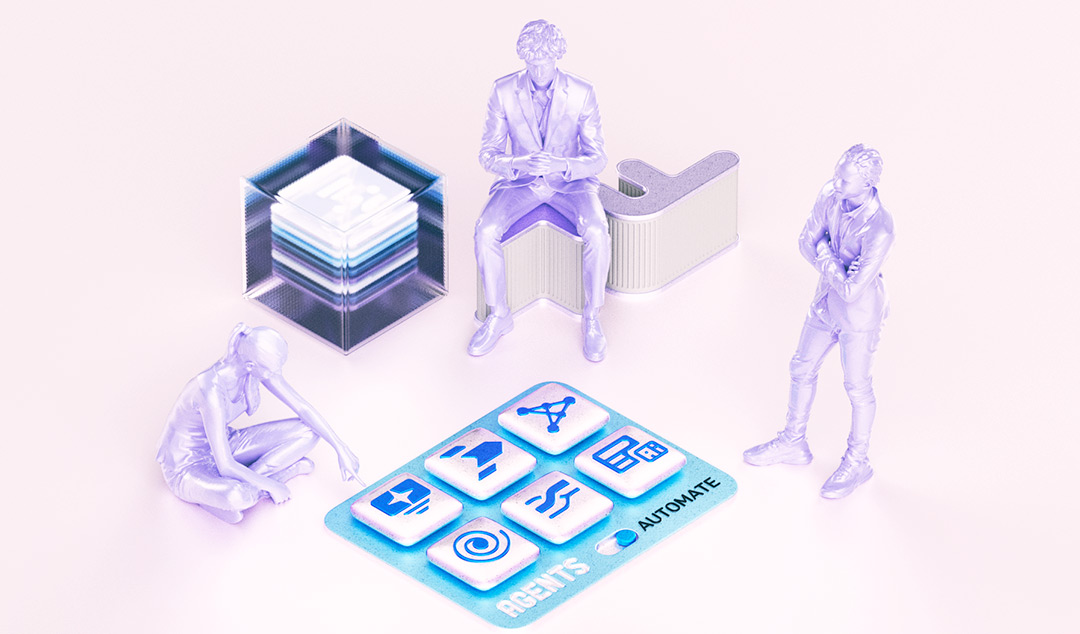Why AI-Driven Testing is the Key to Safeguarding Our Software-Driven World
This article explores the importance of AI-driven testing in safeguarding today's software-reliant world, highlighting real-world incidents that expose the vulnerabilities of traditional testing methods. It emphasizes how AI can enhance efficiency, adapt to changes, and ensure fairness, making it crucial for building reliable, robust and ethical software systems.

As famed Venture Capital investor Marc Andreessen correctly predicted in 2011, the world has indeed been eaten by software. But what happens when that software fails and leaves us vulnerable? The answer lies in ensuring that software is rigorously tested, and AI-driven testing may be the key to achieving this.
As software increasingly underpins every aspect of our daily lives, the need for thorough and sophisticated testing has become more critical than ever. Recent high-profile incidents have exposed significant gaps in software quality assurance (QA), underscoring the urgent need for advanced AI-driven testing to guarantee the reliability, robustness and trustworthiness of the systems we commonly depend on.
High-Profile Failures Highlight the Need for Better Testing
Air Canada’s Misleading Chatbot
Incident Overview: Air Canada encountered legal challenges after an AI-powered chatbot provided incorrect information about special ticket prices for grieving passengers. The chatbot mistakenly informed a passenger that they could request a discount after purchasing a ticket, resulting in a costly court ruling against the airline.
FZE’s Solution Analysis: AI-driven testing could have been pivotal in preventing this issue through a multi-layered validation process. This would involve simulating real-world interactions where the chatbot's responses are meticulously cross-referenced with the latest company policies. AI could automatically scan and match chatbot outputs against a dynamic database of company rules, flagging inconsistencies before deployment. Furthermore, AI-driven simulations could replicate diverse customer queries, rigorously testing how the chatbot handles various edge cases, ensuring all possible scenarios are accurately addressed.
Google's Gemini AI Blunders
Incident Overview: Google’s Gemini AI faced backlash for generating historically inaccurate and biased images, such as misrepresenting America’s Founding Fathers. The issue was traced back to insufficient testing, highlighting the critical need for robust AI-driven QA to maintain content accuracy and neutrality.
FZE’s Solution Analysis: To prevent such problems, AI-driven testing should incorporate comprehensive bias detection algorithms that assess content for historical accuracy and neutrality. These algorithms can analyze vast datasets, comparing generated content against verified historical records to identify potential inaccuracies. Additionally, the AI-driven testing process could include scenario-based testing, training the system to recognize and correct biases in generated content. Continuous monitoring, with AI automatically reviewing new content in real-time, would allow for immediate corrections, ensuring biases are addressed before content reaches the public.
Amazon's Hiring Algorithm Bias
Incident Overview: Amazon's AI-based hiring tool, designed to streamline recruitment, inadvertently favored male candidates due to historical data biases. This incident revealed the dangers of deploying AI without sufficient bias testing.
FZE’s Solution Analysis: Advanced AI-driven testing can prevent such biases by employing fairness and diversity auditing tools throughout development and deployment. These tools would scrutinize training data to detect and mitigate inherent biases, ensuring that the dataset used for AI training is diverse and representative. Moreover, AI-driven testing could involve running parallel simulations, testing the hiring tool with hypothetical candidates of different genders, ethnicities, and backgrounds to ensure equitable outcomes. Continuous feedback loops, where the AI is retrained and adjusted based on real-world hiring results, would further refine the tool's decision-making process, minimizing biases over time.
Salesforce Service Outage
Incident Overview: In October 2022, Salesforce experienced a significant outage due to a database misconfiguration during routine maintenance, disrupting critical services for businesses relying on Salesforce's CRM solutions.
FZE’s Solution Analysis: AI-driven testing could have averted this outage through proactive configuration management and automated validation processes. AI tools can simulate database updates in a controlled environment, identifying potential misconfigurations before they are deployed in production. These simulations can include stress testing under various conditions, ensuring the system remains stable even under heavy loads. Additionally, AI-driven rollback mechanisms can be implemented, where any detected misconfiguration triggers an automatic rollback to the last known stable state, minimizing downtime and service disruption. Continuous integration (CI) pipelines enhanced with AI can also provide real-time alerts and corrective actions if anomalies are detected during maintenance.
Microsoft Azure Active Directory Outage
Incident Overview: In March 2021, Microsoft Azure Active Directory experienced an outage that blocked users from accessing various applications. The root cause was a flaw in the update process.
Solution Analysis: To prevent such outages, AI-driven testing can be integrated into the CI/CD pipeline to continuously validate update processes before they are rolled out to production. AI can simulate various user scenarios, testing the authentication system under different conditions to identify potential vulnerabilities. Additionally, AI-driven testing can include failure scenario simulations, where potential points of failure are identified, and rollback procedures are automatically tested to ensure that any issues can be quickly mitigated. This approach ensures that even in the event of an unexpected failure, the system can recover without causing significant disruptions to users.
The Role of AI in Testing
As software becomes more integral to our lives, ensuring its reliability and security has become a paramount concern. Traditional testing methods, while effective to a degree, are increasingly inadequate in addressing the complexities and scale of modern software systems. This is where AI-driven testing emerges as a transformative force, offering capabilities far beyond what was previously possible.
AI-driven testing automates the generation of test cases, execution, and analysis, dramatically increasing the efficiency of the testing process. By leveraging machine learning algorithms, AI can analyze vast amounts of data to identify patterns, predict potential failure points, and generate test scenarios that might not have been considered through manual processes. This enables QA teams to achieve greater test coverage, ensuring that all aspects of a system are thoroughly tested.
In dynamic development environments, where software is continuously updated, AI-driven testing can quickly adapt to changes in the code. When new features are added or existing ones modified, AI can automatically adjust test cases to account for these changes, reducing the need for manual intervention. This adaptability ensures that testing keeps pace with development, minimizing the risk of bugs or vulnerabilities slipping through the cracks.
Moreover, AI-driven testing plays a crucial role in identifying and mitigating biases within software systems. By analyzing decision-making processes and training data, AI can detect and correct biases that might otherwise lead to unfair outcomes. This is particularly vital in applications like hiring algorithms or financial systems, where fairness is paramount.
AI-driven testing also reduces the risk of human error, offering precise analysis of test results and providing actionable insights that guide teams in making informed decisions. This technology continuously learns and improves, becoming more effective over time in predicting potential issues and optimizing testing processes.
While AI-driven testing automates many aspects of QA, it does not replace the need for human oversight. Instead, it enhances the role of QA teams, allowing them to focus on strategic, high-level decisions and ethical considerations, ensuring that software not only functions correctly but also aligns with societal values.
Preparing for the Future: The Path Forward
The incidents involving Air Canada, Google, and Amazon underscore the critical need for robust testing in our increasingly software-driven world. To build a future where software is not only reliable but also resilient, the industry must adopt AI-driven testing practices that ensure quality, accuracy, and fairness at every stage of development.
At Functionize, we believe that AI-driven innovation in testing is not just an enhancement—it's a necessity for advancing technology while preserving the integrity of the systems that power our lives. Our commitment to prioritizing quality and integrity empowers Enterprise QE organizations to fully leverage the potential of AI, paving the way for groundbreaking innovations that are both robust and trustworthy.
The future of software-driven innovation depends on our ability to trust the systems we create. With AI-driven testing leading the way, we can ensure that our digital world is not only advanced but also secure, fair, and built to withstand the challenges of tomorrow.











